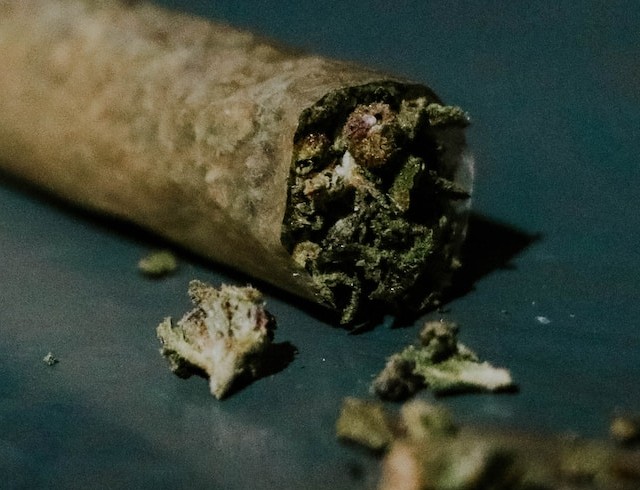How Long After a Smoke Can You Get a DUI? The Legal Limit for Driving High in Colorado

It may be legal to buy, sell, and enjoy cannabis in the Centennial State, but marijuana use doesn’t go unchecked in Colorado.
This is particularly true when it comes to impaired driving. If you’re found to be operating a motor vehicle while high, you could face hefty consequences. So, how much marijuana in your system is too much to drive, and how do you know if you’re too impaired? What’s the legal limit for driving high in Colorado? Maybe you’re already facing driving under the influence (DUI) charges for driving high. If so, a Colorado Springs marijuana DUI lawyer can help navigate the cannabis laws and develop a defense strategy that gets you the best possible outcome for your case.
Colorado Law: Driving Under the Influence of Marijuana
Colorado marijuana laws have been relaxed over the past several years. However, the state still stipulates that driving a motor vehicle under the influence of marijuana is dangerous when certain levels of THC are in the blood. While scientific research has pretty much narrowed down what blood alcohol level constitutes drunk driving, consuming marijuana is much different than drinking alcohol. Nevertheless, Colorado laws regarding THC limits while driving are strict, and marijuana users should think twice before getting behind the wheel after consuming or smoking cannabis products.
THC Limit for Marijuana DUI
So, how much weed is too much weed to drive? In Colorado, a DUI can be issued for anyone driving with any amount of THC in their system; however, the presumptive “limit” is 5 nanograms of THC or more in their system. This is determined by a blood test after a DUI arrest. This limit is not as scientifically backed as the well-known BAC of 0.08 for alcohol, but it is used in a similar fashion.
Medical Marijuana Use and Drugged Driving
It’s a common misconception that having a medical marijuana card in Colorado exempts you from getting a DUI. The legal marijuana limit for operating a vehicle applies to all drivers since impairment can create dangerous traffic situations – regardless of medical reasons. Just as you can get a DUI for driving under the influence of medically prescribed medications such as Ambien, you can also get charged with DUI for driving under the influence of medical marijuana.
DUI or DWAI?
The difference between DUI and DWAI charges depends on your level of impairment while driving. A DUI charge implies that you were substantially impaired and incapable of driving safely, and often this charge is supported by chemical testing evidence that you exceeded the legal THC limit. Driving while ability impaired (DWAI) means you are less capable of operating your vehicle than if you were completely sober – even to the slightest degree. Penalties for DWAIs are less severe than those for DUIs. However, it is still illegal to drive in Colorado while impaired, even if you have less than 5 nanograms in your system.
Do I Have to Take a Marijuana Blood Test?
Blood tests can measure your blood alcohol content or THC levels in your blood, but are you required to take a DUI blood test for marijuana?
When you become a licensed driver in Colorado, you automatically give your express consent to be tested post-arrest under Colorado’s Implied Consent Law. This means that while you don’t have to agree to a roadside alcohol breath test, you do have to comply with any breath or chemical test for alcohol, marijuana, or other drugs once you’ve been arrested; otherwise, you will be marked as a refusal, and your license can be suspended. There’s no roadside breath test for measuring marijuana impairment, in other words, taking a breath test will not show whether someone has consumed TCH. Because of this, the only way for a law enforcement officer to prove you are under the influence of marijuana is to have you take a blood test. You will not be offered a breath test if the officer suspects marijuana consumption because only a blood test shows THC levels.
How Long Should You Wait to Drive After Enjoying Marijuana?
Tetrahydrocannabinol (THC), the active ingredient in marijuana, has different effects from person to person. THC levels don’t necessarily indicate how high you are when you’re tested. Regular marijuana users may have specific amounts of THC in their system without being high—even weeks after consuming it. On the other hand, infrequent users could have minor amounts but be quite impaired.
The Colorado Department of Public Health and Environment’s Colorado Cannabis website recommends that if you’re smoking marijuana in amounts up to 35 milligrams, you should wait six hours or more before biking or driving. For those consuming up to 18 milligrams by eating or drinking, it’s recommended that you wait eight hours or more. If more marijuana is smoked or consumed—or if alcohol is consumed in addition to marijuana use—your ability becomes even more impaired due to the combined effect of the two substances. You should wait even longer before driving.
Got a Marijuana DUI? Contact Right Law Group
Getting a DUI can have some terrible effects on your life. Not only could you be facing fines and jail time, but a DUI offense could mean a driver’s license suspension, mandatory ignition interlock device, and other consequences of having a criminal conviction on your record. If you’re arrested by Colorado police after a DUI traffic stop and test positive for THC in your blood, you still have rights. You need an experienced criminal defense lawyer that can make a significant difference in your case. Call Right Law Group today, and we’ll review your case for free.

